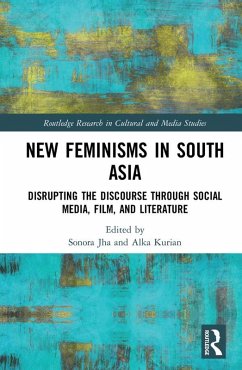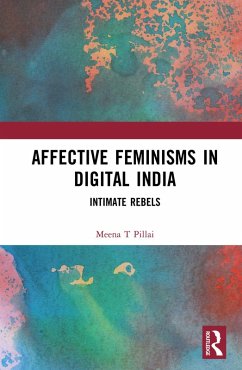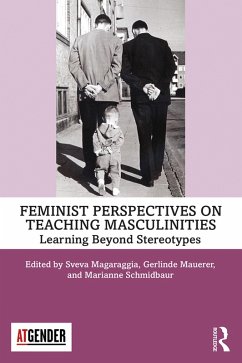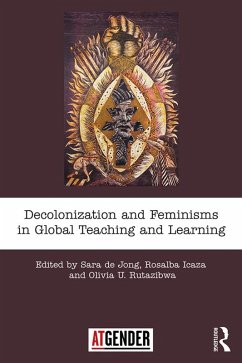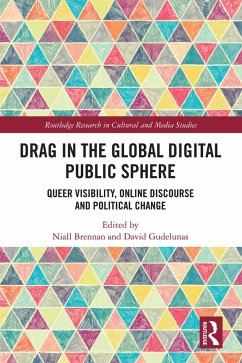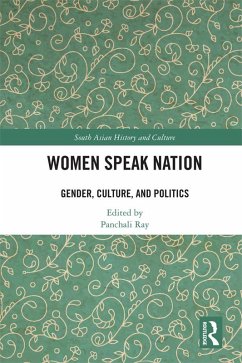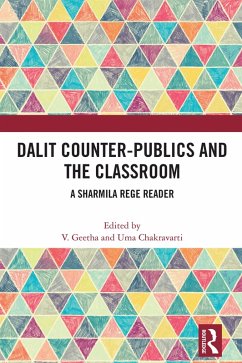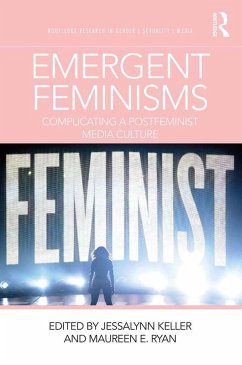
Decolonization and Feminisms in Global Teaching and Learning (eBook, ePUB)
Versandkostenfrei!
Sofort per Download lieferbar
41,95 €
inkl. MwSt.
Weitere Ausgaben:

PAYBACK Punkte
21 °P sammeln!
Decolonization and Feminisms in Global Teaching and Learning is a resource for teachers and learners seeking to participate in the creation of radical and liberating spaces in the academy and beyond. This edited volume is inspired by, and applies, decolonial and feminist thought - two fields with powerful traditions of critical pedagogy, which have shared productive exchange.The structure of this collection reflects the synergies between decolonial and feminist thought in its four parts, which offer reflections on the politics of knowledge; the challenging pathways of finding your voice; the c...
Decolonization and Feminisms in Global Teaching and Learning is a resource for teachers and learners seeking to participate in the creation of radical and liberating spaces in the academy and beyond. This edited volume is inspired by, and applies, decolonial and feminist thought - two fields with powerful traditions of critical pedagogy, which have shared productive exchange.
The structure of this collection reflects the synergies between decolonial and feminist thought in its four parts, which offer reflections on the politics of knowledge; the challenging pathways of finding your voice; the constraints and possibilities of institutional contexts; and the relation between decolonial and feminist thought and established academic disciplines. To root this book in the political struggles that inspire it, and to maintain the close connection between political action and reflection in praxis, chapters are interspersed with manifestos formulated by activists from across the world, as further resources for learning and teaching.
These essays definitively argue that the decolonization of universities, through the re-examination of how knowledge is produced and taught, is only strengthened when connected to feminist and critical queer and gender perspectives. Concurrently, they make the compelling case that gender and feminist teaching can be enhanced and developed when open to its own decolonization.
The structure of this collection reflects the synergies between decolonial and feminist thought in its four parts, which offer reflections on the politics of knowledge; the challenging pathways of finding your voice; the constraints and possibilities of institutional contexts; and the relation between decolonial and feminist thought and established academic disciplines. To root this book in the political struggles that inspire it, and to maintain the close connection between political action and reflection in praxis, chapters are interspersed with manifestos formulated by activists from across the world, as further resources for learning and teaching.
These essays definitively argue that the decolonization of universities, through the re-examination of how knowledge is produced and taught, is only strengthened when connected to feminist and critical queer and gender perspectives. Concurrently, they make the compelling case that gender and feminist teaching can be enhanced and developed when open to its own decolonization.
Dieser Download kann aus rechtlichen Gründen nur mit Rechnungsadresse in A, B, BG, CY, CZ, D, DK, EW, E, FIN, F, GR, HR, H, IRL, I, LT, L, LR, M, NL, PL, P, R, S, SLO, SK ausgeliefert werden.




